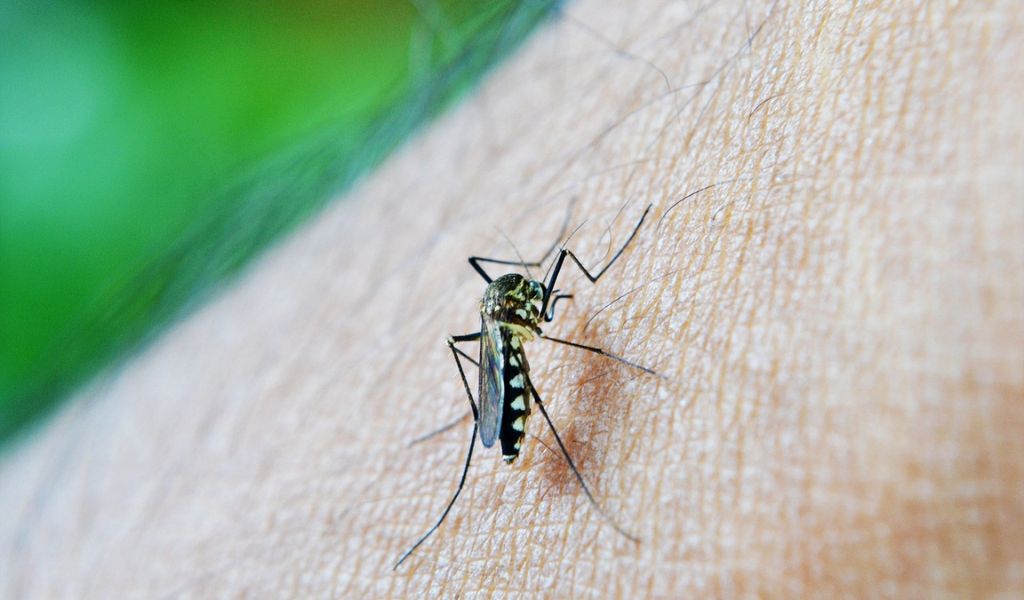Mosquitoes have been buzzing around in search of a person to bite for as long as there have been humans.
We are constantly at war with mosquitoes, according to Dr. Conor McMeniman, an assistant professor of molecular microbiology and immunology at the Johns Hopkins Bloomberg School of Public Health and Johns Hopkins Malaria Research Institute in Baltimore.
It’s a battle that frequently ends in death since mosquitoes spread diseases like West Nile virus, dengue fever, and malaria that kill more people than any other animal.
The mosquitoes around you are still a nuisance even if they don’t transmit these diseases. The facts of how mosquitoes prey on humans, what draws them in, and what experts advise doing to avoid being bitten are provided below.
The Science of Mosquito Bites
Mosquitoes frequently consume plant fluids and nectars and even aid in flower pollination. Yet when it’s time for female mosquitoes to lay eggs, the soon-to-be mothers need more protein, which they obtain by ingesting blood.
According to McMeniman, a mosquito actually sticks its mouth parts into your skin when it bites in order to look for a blood vessel. When it finds blood gold, the mosquito sucks in red blood cells and plasma like a straw-guzzling bubble tea.
The mosquito benefits from drinking swiftly so that it can flee unnoticed. He claimed that in order to achieve this, “mosquitoes spit into the skin a whole cocktail of different proteins” that serve as both analgesics and anticoagulants to prevent blood clotting. Our bodies’ inflammatory response to this chemical mix causes mosquito bites, which cause itching and discomfort. However, these symptoms don’t appear until after the aggressor is no longer in danger of being swatted.
Different people react differently to mosquito bites; one may go through a cookout relatively undamaged with a few pimple-like spots, while another is forced to spend the next week nursing dozens of silver dollar-sized welts.
It may not be a direct correlation between your perceived and actual attractiveness to mosquitoes, according to McMeniman. The perception of your response to the mosquitoes and whether you are itching influence some of it, according to the researcher.
What Attracts Mosquitoes?
In his most recent study published in the journal Current Biology, McMeniman revealed that some people truly attract mosquitoes. Mosquitoes have diverse reactions to the variety of compounds that make up each person’s body odor bouquet, and some of these chemicals are perceived as more attractive than others. Finding out why some people are particularly alluring to mosquitoes is unfortunately not an easy task.
According to McMeniman, “there could be a number of factors, including your underlying food, genetics, and physiology, that might alter the makeup of your fragrance. All of these factors have the ability to affect both the makeup of the microbiome that naturally resides on our skin and the types of chemicals that the human body emits.
Although it would be lovely to simply copy the scent profile of individuals that mosquitoes avoid and sell it as a body spray to those with the dubious distinction of being “tastier,” this isn’t feasible at this time. We’re still working to comprehend this process’ chemistry, he said.
There is a broad pattern to how mosquitoes locate us, even if experts are still learning the specifics of which fragrances attract them.
“First they smell you, then they see you, and when they’re close enough, maybe within a meter of the host, they can actually detect thermal cues dissipating from your skin,” McMeniman explained. The gas that we exhale when we breathe, carbon dioxide, is one of the most significant odors that attracts mosquitoes from a great distance.
As a rule, the majority of them are drawn to CO2 from a great distance, according to Dr. Kristen Healy, president of the American Mosquito Control Association and an associate professor of entomology at Louisiana State University. Numerous studies have demonstrated that CO2 from human breath, particularly when large numbers of people are present, can draw mosquitoes. Sweat and body heat also appear to be factors.
Healy asserted that this idea had held true based on her personal experiences. She stated, “I will definitely notice a difference in mosquito attraction if I’m active and sweating because they can cue into those other extra odors.”
Numerous scientific studies over the years have revealed possible factors that influence mosquito attraction. Some have suggested that beer drinkers are more likely to get bitten, while others have suggested that certain hues, such as red, may be more alluring to mosquitoes.
Scaling up those research would be extremely beneficial to see how universal these results are across many hosts, according to McMeniman. You shouldn’t definitely toss away all of your red shirts and your beer just yet.
How to Prevent Mosquito Bites?
There are a plethora of gadgets and sprays that claim to repel mosquitoes, maybe as a result of the intricacy and unanswered questions surrounding mosquito attraction. It’s “not necessarily backed by research and science, and they’re kind of just out there on the market,” Healy said of cutting-edge products like ultrasonic insect repellents. A product that claims to be 100% successful in killing mosquitoes is never something I would trust.
However, “I think it’s worth noting that these are insecticides — obviously, they’ve passed EPA (US Environmental Protection Agency) registration standards, but you are walking around in a cloud of insecticide,” McMeniman said. Devices that spray insect repellant over a broader area can be effective.
Healy and McMeniman suggest more time-tested techniques as an alternative.
“During the summer, it’s really important to cover up as much as you can, and use an EPA-registered insect repellent with ingredients like DEET and picaridin,” McMeniman added. He advises oil of lemon eucalyptus for persons who favor botanical items.
Make sure your windows are screen-free, and run a fan or air conditioner at night to keep mosquitoes out of your house. Weekly clearing of rubbish and drainage of standing water in your yard will stop mosquito eggs from hatching.
In the end, there is no foolproof method of repelling mosquitoes. Even though the results of many studies may be intriguing, there is no easy diet to follow, color to stay away from, or aroma of soap to wash with that will keep mosquitoes away.
Interacting with mosquitoes is a necessary element of living in harmony with the rest of nature on our planet. Purchase a reliable bug spray, and be sure to reapply it as necessary.
Kate Golembiewski is a Chicago-based independent science writer who is passionate about biology, thermodynamics, and death. The comedian she is is the host of “A Scientist Walks Into a Bar.”








































